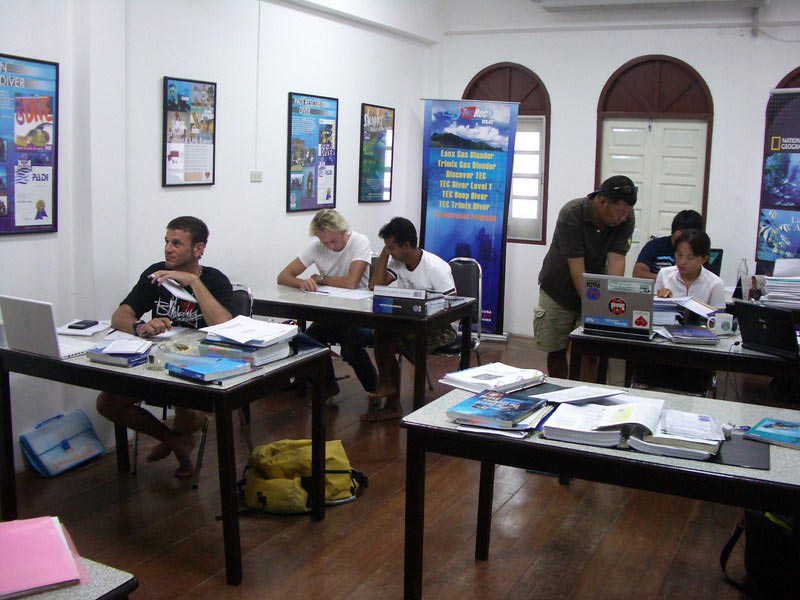Through our years of experience, it is true that many candidates for PADI Instructor courses and certifications arrive with a lack of preparation. Success through the PADI IDC and IE depends highly on conducting the most suitable preparation to get you ready to begin.
Without the right preparation, you will have to work much harder during your chosen course because the knowledge and skills base comes from other courses you will have previously enrolled in.
The Divemaster theory is a vital part of the IDC program, it is therefore very important that you revise your previous work, even if you believe you have full knowledge, so that you do not have to work harder during the IDC courses.
Please follow the below preparation steps prior to your IDC or as part of your complimentary pre-study program:
Please remember to bring everything to Phuket with you including your logbook for verification of your dives.
Once you are sure that the above requirements have been meet you need to take a look at our different IDC programs and the current special offers and contact us if you have any further questions. 25% deposit is required to reserve your place - deposits may be paid using Pay pal (by far the simplest & easiest method) or by bank transfer - contact us for bank transfer details.
Dive Theory
Our experience tells us that most IDC candidates need to brush up on their dive theory from the Divemaster course (Physics, Physiology, RDP, Skills & Environment and Equipment) prior to the IDC. Thoroughly review your knowledge of the 5 theory topics: Physics, Physiology, Equipment, Skills & Environment and the Recreational Dive Planner, both the table and the eRDPml. It is important to know that these topics are not covered during the IDC, they have been taught in the Divemaster Course. Remember after this course you to be able to explain to others how to do it.
There are two options for doing this:
On line learning for refreshing your Dive Theory is becoming a popular option.

It is a great idea to take yourself on diving trips as often as is possible. Taking your experiences out into the water will only enhance your knowledge, awareness and skill. The PADI skill circuit consisting of 24 skills, should be put into practice as much as possible.
Take care with practising key skills. Buoyancy, hovering, out of air skills, fin pivots are all vital parts of gaining successful certification as an Instructor.
Take the time to help out the PADI Instructor at your local dive center and put into practice what you have learned under their supervision.
Ask the PADI Instructor if you can conduct a rescue diver exercise under their supervision. PADI have some superb rescue diver visuals and videos to watch before you perform an exercise like the 'Unconscious Diver' on the water surface. This is one that will be assessed during your Instructor Examination.
In addition, and equally important, is to take part in buddy breathing, swimming, the controlled emergency swimming ascent (CESA) along with how and when to use your alternate air source.
Where possible, use your removal skills and practice using your weight belt to balance your positive buoyancy at the surface of the water, and under it.
Finally, enjoy your IDC. You can enjoy it and work in a relaxed manner if you are well prepared and confident that you have revised and practiced your DM skills properly.
Ocean Geo Divers
31/43-44 Moo1
T.Rawai
A.Muang
Phuket
Thailand
83130
Email:info@scubacat-idc.com